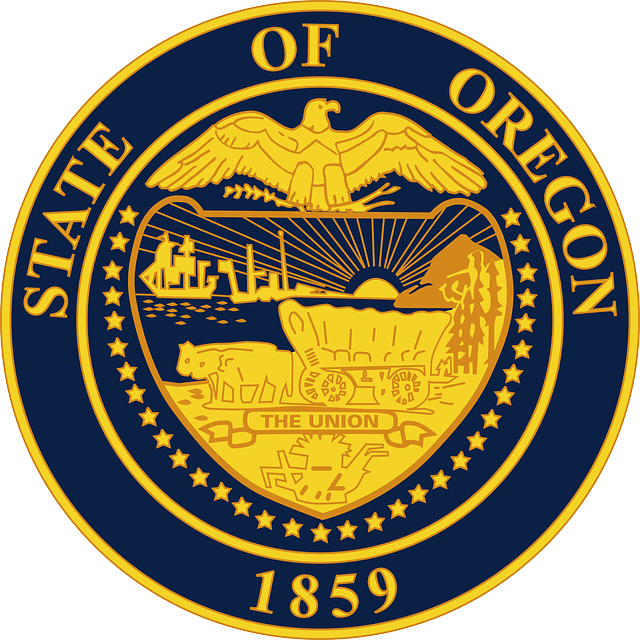Oregon boasts a robust child support enforcement system, prioritizing family well-being and children's interests. Key steps include establishing paternity through an Acknowledgement form or court order, creating a collaborative support plan outlining payments, parenting time, and medical coverage, and enforcing orders with measures like wage garnishments and license suspensions for non-compliance. The Oregon Department of Human Services (DHS) leads these efforts, offering financial aid, legal assistance, and workshops, while local nonprofits provide counseling and educational resources. This comprehensive system ensures children receive the financial support they're entitled to.
In Oregon, ensuring children receive financial support from both parents is paramount. This article guides you through the crucial steps to enforce child support payments, offering a comprehensive overview of Oregon’s laws and processes. From understanding the legal framework to establishing paternity, creating support plans, exploring collection methods, and accessing available resources, we provide essential insights for successful Oregon child support enforcement.
- Understanding Oregon's Child Support Laws
- Establishing Paternity: A Crucial First Step
- Creating a Support Plan: How It Works
- Collection Processes and Enforcement Options
- Resources and Assistance for Parents in Oregon
Understanding Oregon's Child Support Laws

Oregon has established a comprehensive system for enforcing child support payments, ensuring that children receive financial support from both parents. The state’s laws are designed to protect the interests of children and promote the well-being of families. Understanding these laws is crucial for both parents involved in a child support case.
In Oregon, child support enforcement involves several steps, including the establishment of a child support order, regular communication between parents, and potential penalties for non-compliance. The state’s Department of Human Services plays a vital role in facilitating these processes. By understanding their rights and responsibilities, parents can navigate the system effectively and ensure their children receive the financial support they are entitled to.
Establishing Paternity: A Crucial First Step

Establishing paternity is a fundamental initial step in Oregon child support enforcement proceedings. It’s crucial because it determines who is legally responsible for providing financial support to a child. In Oregon, paternity can be established through an Acknowledgement of Paternity form, which can be signed by both parents at the time of the child’s birth or afterwards. If the parents aren’t married and cannot agree on paternity, a court order may be necessary.
This process is essential as it ensures that the child receives financial support from both parents and allows for a clear legal framework in managing and enforcing child support payments. Once paternity is established, either parent can request a child support order from the Oregon Department of Human Services or through the courts, which will consider factors like income, custody arrangements, and the needs of the child to determine an appropriate support amount.
Creating a Support Plan: How It Works

In Oregon, creating a support plan is a collaborative process aimed at ensuring stable financial support for children after a separation or divorce. It involves both parents working together to establish a reasonable and fair agreement on child support payments. This plan is not just about money; it also outlines parenting time, medical coverage, and other expenses related to the child’s welfare. The Oregon Department of Human Services (DHS) provides tools and guidelines to facilitate this process, ensuring that both parties understand their rights and responsibilities.
The support plan is created through negotiations or with the assistance of a court. Parents may agree on a specific amount based on factors like income, expenses, and shared parenting time. Alternatively, the court will calculate the support amount using Oregon’s established child support guidelines, which consider each parent’s income, the time the child spends with each parent, and other relevant factors. Once agreed upon or ordered by the court, the plan is enforced by the DHS, ensuring that both parents fulfill their financial obligations towards their children’s well-being. Effective enforcement includes regular communication, prompt payment, and adherence to the terms outlined in the support plan.
Collection Processes and Enforcement Options

In Oregon, child support enforcement is a structured process aimed at ensuring financial stability for children after a divorce or separation. The collection processes begin with the establishment of a child support order by a court, which outlines the amount and schedule of payments. Failure to adhere to this order can trigger various enforcement options designed to motivate non-paying parents into compliance. These include wage garnishments, where employers are legally required to deduct a portion of the parent’s wages until the full support amount is paid. Additionally, the Oregon Department of Social and Human Services (DSHS) has the authority to suspend driving privileges or professional licenses until arrears are cleared, providing an additional incentive for timely payments.
Enforcement options extend further, allowing the DSHS to take more proactive measures such as suspending or revoking federal benefits, including tax refunds and government contracts, if applicable. In some cases, they may also seize assets or bank accounts belonging to the non-paying parent until the child support debt is settled. These processes are designed not only to collect outstanding payments but also to maintain a consistent financial flow for the child’s well-being, emphasizing the state’s commitment to Oregon child support enforcement.
Resources and Assistance for Parents in Oregon

In Oregon, parents seeking assistance with child support payments can access a range of resources and support systems tailored to their needs. The state’s Department of Human Services (DHS) plays a pivotal role in managing child support services, offering guidance, and enforcing payment plans. One key service is the Oregon Child Support Program, which provides financial assistance and support for parents who are behind on payments or struggling to meet their obligations. This program connects parents with resources like legal aid, financial planning workshops, and mediation services to help them navigate the enforcement process effectively.
Additionally, non-profit organizations and community agencies throughout Oregon offer valuable assistance. These groups often provide free or low-cost counseling, budget management tools, and educational resources specifically designed to support parents in their child support journey. By leveraging these local resources, parents can gain a better understanding of their rights and responsibilities under Oregon’s child support enforcement laws, ultimately fostering a more cooperative environment for ensuring regular and timely payments.






